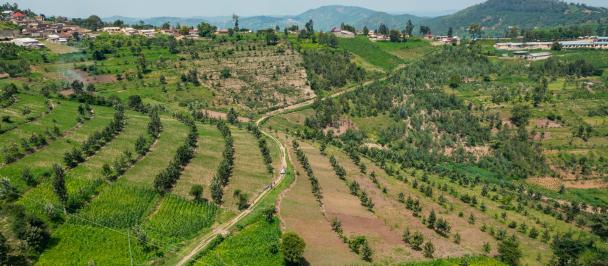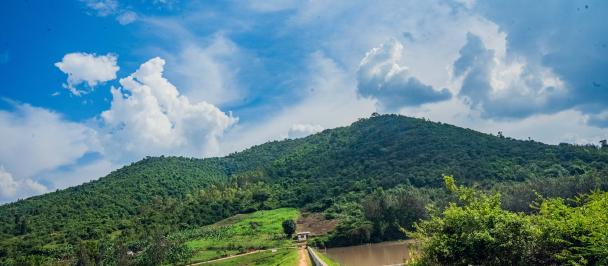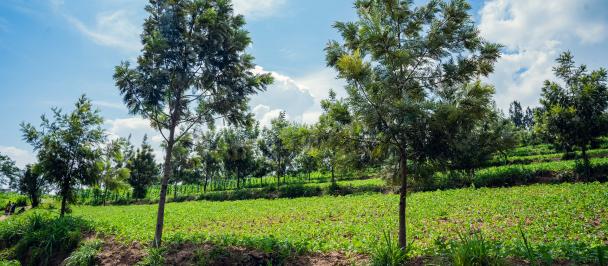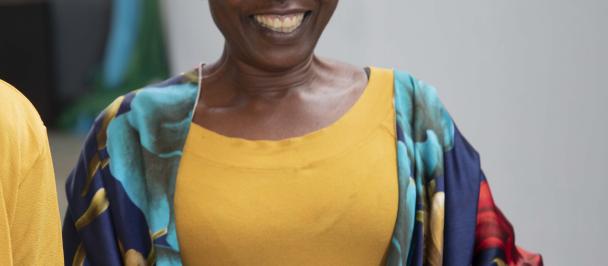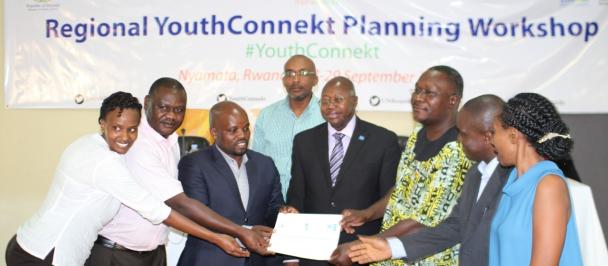Noel Nizeyimana, the young CEO of Green Care Ltd.. who were honoured with the Youth Green Innovation and Investment Award 2021
On the occasion of World Environment Day, 5 June 2021, the United Nations Development Programme (UNDP) Rwanda honoured Noel Nizeyimana, the young CEO of Green Care Ltd., with the Youth Green Innovation and Investment Award. The company was established in 2016 by four young university graduates who transformed a district landfill into a waste management plant. Located in the city of Huye, Southern province of Rwanda, it is a model of sustainable waste management.
According to Nizeyimana, Green Care’s initial purpose was to convert waste into organic fertilisers to remedy the problem of soil nutrient impoverishment and to increase agricultural productivity. As the company expanded, it also started to make pavers out of plastic waste to support the construction sector.
Green Care received a cheque of 6000 Rwandan francs (Rwf). “This award is a strong recognition of our efforts, a message that our work is valued. It is an invaluable motivation and support that will push us to go further,” Nizeyimana said.
As of today, the company produces 400 tonnes of organic fertilizer every year and employs 25 permanent workers. The 6000 Rwf will help to implement Green Care’s five-year strategic plan, which includes expansion of their activities to other districts of the country.
“The young businessmen and women that we are honouring today demonstrate that more sustainable ways of doing businesses are both possible and profitable. You are building a better and more sustainable economy,” said Maxwell Gomera, Resident Representative of UNDP in Rwanda, while handing over the award to Nizeyimana.
The annual award was established in 2020 by the Rwanda Environment Management Authority (REMA) in partnership with UNDP in Rwanda to recognize the best green businesses managed by young people. It is part of Poverty Environment Action for the SDGs (PEA), a joint UNDP, Rwanda Environment Management Authority (REMA), and Global Environment Facility (GEF) project.
The award aims to encourage Rwandan youth to scale up their environment-friendly businesses. It recognizes that youth play a pivotal role in addressing climate change and environment protection. Their contribution ranges from creating awareness and advocacy to implementing green initiatives to starting innovative new businesses.
Youth (aged 16-30) represent a huge sector of Rwandan society. About 29% of the total Rwandan population and about 78% of Rwandans are below 35 years of age, according to the Fifth Integrated Household Living Conditions Survey (2016/2017). As such, their participation takes on even more importance.
Green Care stood out as an innovative solution to an under-appreciated problem: the accumulation of untreated municipal waste. According to the World Bank’s What a Waste
Report 2.0, the world generates 2.01 billion tonnes of municipal solid waste annually, with at least 33% of that managed in an environmentally unsafe manner.
Due to urbanisation, population growth and economic development, waste generation is expected to increase by 70% over the next 30 years. Waste generation in Sub-Saharan Africa, with its rapidly growing population, is expected to more than triple by 2050.
Furthermore, greenhouse gasses from waste are a key contributor to climate change. Solid waste–related emissions are anticipated to reach 2.38 billion tonnes of CO2-equivalent per year by 2050 if no improvements are made.
In fast growing regions such as Sub-Saharan Africa, more than half of waste is openly dumped, and waste growth has vast implications for the environment, climate, health, and prosperity, requiring urgent action.
It is therefore critical to support young green entrepreneurs such as Nizeyimana, who are at the forefront to environmental and climate solutions. Furthermore, their work helps to create more jobs and tackle youth unemployment.
This initiative is aligned with Rwanda’s National Strategy for Transformation, which aims to create 1.5 million decent and productive jobs by 2022, and with the country’s Climate Action Agenda that aims to reduce greenhouse gas emissions by 38% by 2030.

 Locations
Locations